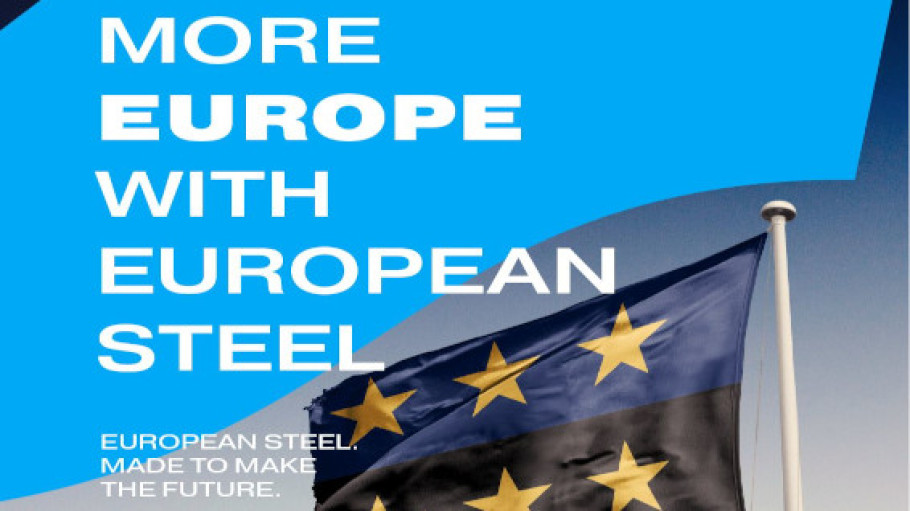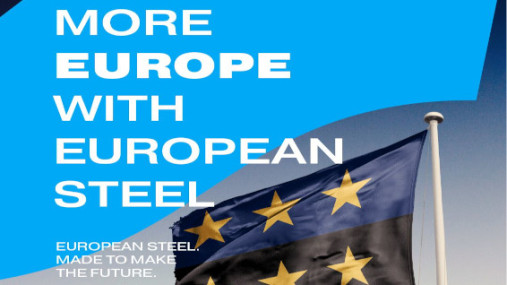
Press releases » 75th anniversary of the Schuman Declaration: once again, the future of European steel will determine Europe’s future, says EUROFER
75th anniversary of the Schuman Declaration: once again, the future of European steel will determine Europe’s future, says EUROFER
Downloads and links
Recent updates

Brussels, 8 May 2025 – Seventy-five years ago, on 9 May 1950, the Schuman Declaration laid the foundation for European unity, placing coal and steel at the heart of a unique peace project that has brought unparalleled prosperity across the continent and beyond. As the EU commemorates this milestone, the fate of Europe’s steel industry will once again determine Europe’s future.
"The European steel sector is the cornerstone of the EU’s strategic autonomy and economic resilience. The steel value chain is the powerhouse of the European economy, of innovation and the green transition, supporting millions of jobs across Europe. Yet today, this vital industry is under existential threat. Global steel overcapacity, unfair trade practices, high energy costs in Europe, and a lack of equal ambition from trading partners on climate protection and social standards are eroding the EU’s industrial base and its ability to act autonomously in an increasingly multi-polar, adversarial global context. Without urgent and radical action, we risk dismantling both the foundation and the future of the European project”, said Dr Henrik Adam, President of the European Steel Association (EUROFER).
“Today’s crisis of the European industry reflects the broader geoeconomic pressures the European Union is facing. The Clean Industrial Deal and the Steel and Metals Action Plan, presented by the European Commission in February and March, have the potential to reload the European project. Urgently adopting and implementing the measures proposed in the Steel and Metals Action Plan is essential – starting with a new, highly effective trade measure to replace the largely ineffective EU steel safeguard, closing the loopholes of the Carbon Border Adjustment Mechanism, cutting energy prices by half, addressing the leakage of valuable secondary resources, in particular metal scrap”, he continued.
“As we honour Schuman’s legacy, we urge EU leaders and policymakers to match his ambition and vision. European steelmaking has come a long way since the European Coal and Steel Community was established. Yet today, investing in clean, competitive EU-made steel still means investing in Europe’s future. Steel is not just an industry; it is a pillar of Europe’s sovereignty, prosperity and cohesion - past, present and future. It’s time for political courage and bold measures again", concluded Dr Adam.
Contact
Lucia Sali, Spokesperson and Head of Communications, +32 2 738 79 35, (l.sali@eurofer.eu)
About the European Steel Association (EUROFER)
EUROFER AISBL is located in Brussels and was founded in 1976. It represents the entirety of steel production in the European Union. EUROFER members are steel companies and national steel federations throughout the EU. The major steel companies and national steel federation of Turkey, Ukraine and the United Kingdom are associate members.
The European Steel Association is recorded in the EU transparency register: 93038071152-83.
About the European steel industry
The European steel industry is a world leader in innovation and environmental sustainability. It has a turnover of around €191 billion and directly employs around 303,000 highly-skilled people, producing on average 140 million tonnes of steel per year. More than 500 steel production sites across 22 EU Member States provide direct and indirect employment to millions more European citizens. Closely integrated with Europe’s manufacturing and construction industries, steel is the backbone for development, growth and employment in Europe.
Steel is the most versatile industrial material in the world. The thousands of different grades and types of steel developed by the industry make the modern world possible. Steel is 100% recyclable and therefore is a fundamental part of the circular economy. As a basic engineering material, steel is also an essential factor in the development and deployment of innovative, CO2-mitigating technologies, improving resource efficiency and fostering sustainable development in Europe.

Download files or visit links related to this content
Brussels, 26 February 2026 — Europe’s steel industry has warned that the current draft Industrial Accelerator Act could direct public support for low-carbon steel to producers outside the European Union, unless lawmakers include and tighten ‘Made in Europe’ provisions.
Brussels, 24 February 2026 - Europe’s energy-intensive industries have set out a series of proposals to ensure that the EU’s upcoming Electrification Action Plan delivers on its objectives to stimulate and boost electricity consumption in industry. In a joint position paper, industries warn that persistently high electricity prices risk undermining industrial competitiveness and decarbonisation efforts. They call for a policy framework that will enable EU industry in pursuing decarbonisation and industrial competitiveness.
Energy-intensive industries (EIIs) provide direct employment to around 2.6 million people in the EU and represent the foundations of critical and strategic value chains for the EU economy and society. The current economic and energy outlook of the European Union is making investments in electrification and the continued business operation of our sectors at serious risk, should the energy-cost challenge not be solved.